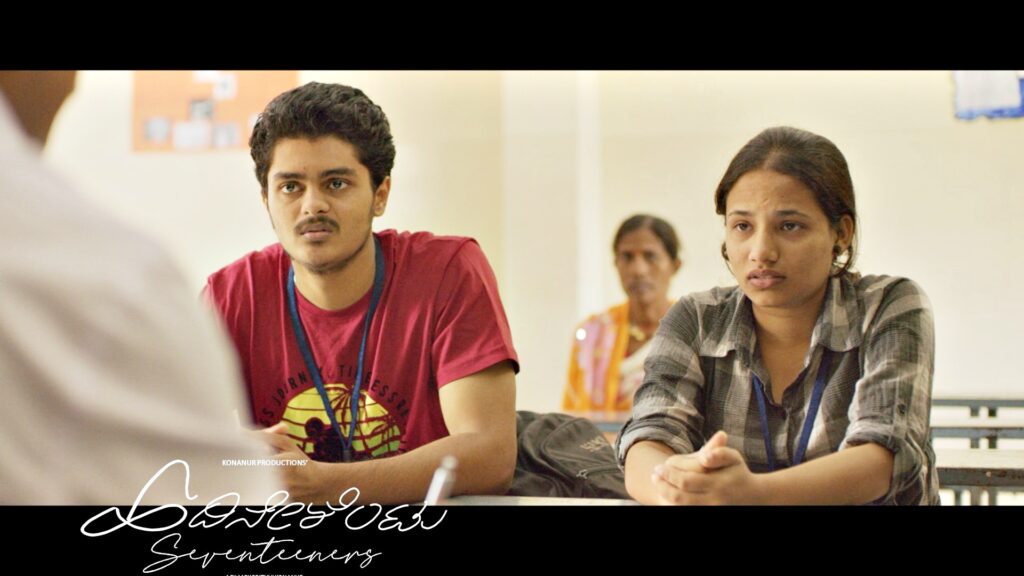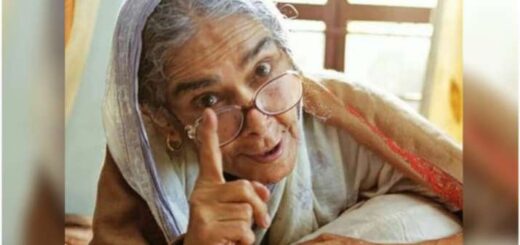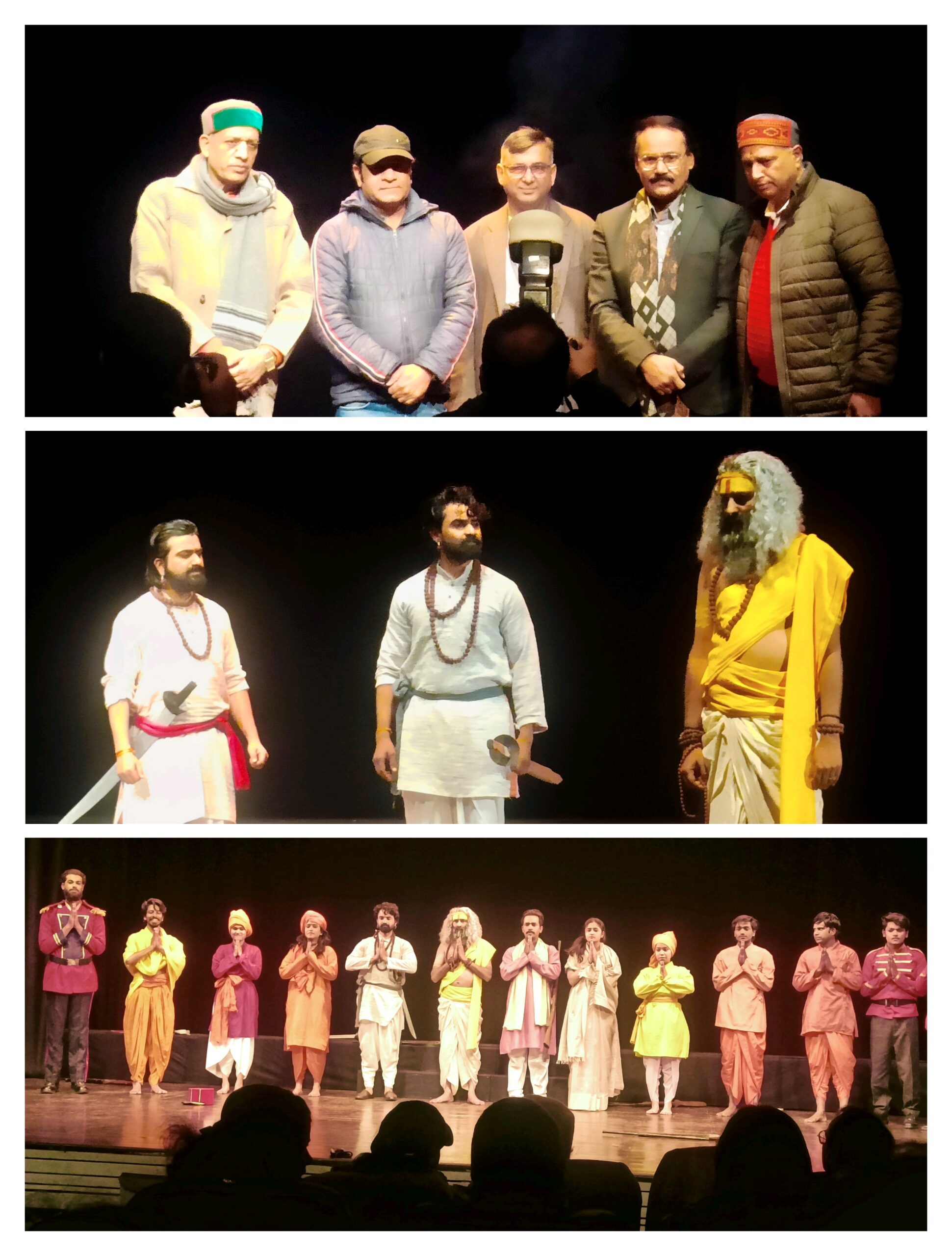The Urban tale of caste discrimination

The Kanada film ‘Handinelentu’, a masterful creation by the talented Prithvi Konanur, unfolds with the closing situation of an elite higher school in the city. Students Hari and Deepa share an intimate moment in a classroom. During that time, Hari gives her a locket engraved with the words ‘I love you’. The scene ends with Hari recording a video of their intimate moment on his cell phone. Throughout the film, sporadic title cards are displayed. After this scene, the last title card appears, marking the beginning of the main story.
There is a sports event happening on the school playground. Hari, a student from a privileged background, is among the spectators, showing a video on his mobile to some boys nearby. From their gestures, it seems the video is about the female body. The next scene occurs the following day, with school in session and boys and girls arriving. Hari enters college, and his friend informs him that the Principal has summoned him. Hari goes to the Principal’s room, where he is scolded and asked to call his parents. This moment marks the beginning of the central dramatic tension of the film: the school begins discussing the possibility of expelling the boy and the girl. The boy comes from a wealthy family, so the school management body is lenient towards him. The girl, on the other hand, comes from a low-income family and belongs to a lower caste, so there is no one to show sympathy for her. The discussions start in this manner but gradually intensify, highlighting the personal struggles of the characters and the harsh realities they face.

Deepa, a member of the oppressed Dalit community from an economically disadvantaged background, and Hari, from an upper-middle-class Brahmin family, are the central figures in this societal drama. The film’s critique is explicit: the different social statuses and the discriminatory attitudes towards the accused, based on their caste and economic background, paint a grim picture of society.
Some deliberately try to destroy Deepa’s bright prospects as a player. On the contrary, the upper-caste family plans to send Hari to study abroad. The biased attitude expressed by the school principal exposes another facade of caste discrimination. The composition of the committee formed to decide the punishment for the accused, with four upper-caste and only one lower-caste teacher, reveals the administration’s casteist mindset in the educational institution.
The film is primarily school-centric. As the story unfolds, the families of the two accused also come into the picture. The entry of various characters at different stages has made the film’s narrative pacy. The technique of unravelling the story is akin to that of a thriller genre film. The director, Prithvi Konanur, has skillfully created and sustained the curiosity of ‘What next?’ His portrayal of how caste and economic discrimination permeates different levels of society, getting expressed sometimes overtly and sometimes covertly when opportunities arise, is a testament to his skill in depicting societal issues. He does not advocate for any one side nor show excessive sympathy towards anyone. This self-restrained neutrality and epic detachment lends him the dignity of an unbiased, sensitive artist of society. Earlier, works propagating specific political ideologies under the garb of social awareness were termed progressive by certain quarters. Times have changed now. Artists like Prithvi Konanur prove that a sensitive filmmaker can make a socially aware film without propagating political ideologies. His earlier film ‘Pinki Elii’ also depicted the life and struggles of marginalised people.
The film moves thrillingly but doesn’t rely on surprising camera angles to create excitement, even though the story provides opportunities. The director’s artistic ideology is to depict a picture of society impartially. Arjun Raja’s cinematography also aligns with this ideology. Many outdoor school scenes show the verandah, with parallel and perpendicular lines of grills and railings against pale, clean backgrounds, adding complexity to the shots in line with the film’s narrative. The cinematographer uses a handheld camera for some parts of the film, and the resulting slight jerkiness adds another dimension to conveying the mental unrest in the characters and the story. The physical intimacy video is the film’s driving force, but the director did not show it to the audience. However, viewers can easily guess its contents. This restraint and decency have enhanced the film’s and the director’s dignity.
Editor Sivakumar Swamy skillfully weaved shots of different moods into a seamless flow, keeping pace with the story’s progressively increasing momentum and adding to the film’s appeal. Sherlyn Bhosle delivered a lively and authentic portrayal of Deepa’s inner turmoil, remorse, and despair, while Rekha Kudligi convincingly portrayed the role of the school’s Vice-principal. Through their authentic embodiment of their characters, all the actors have successfully elicited a strong emotional response from the audience. It is challenging to elicit consistent acting from various actors, and the director has succeeded admirably in this aspect.
The standout feature of ‘Hadinelenthu’ is its ability to provoke thought and discussion on the harsh reality of caste discrimination, touching upon various aspects of society through a contemporary issue. The film contains a lot of dialogue; reducing this and giving more prominence to visual images in some scenes could have made the aesthetic aspects more meaningful. The film’s thought-provoking narrative and ability to spark discussions on such a sensitive issue testify to its impact on the audience.









